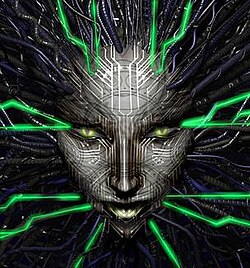'Typically several groups of inventors have envisaged the principle in action at more or less the same time and have made attempts at a working version of it. Such multiple efforts and filling in of key pieces make it difficult to speak of "invention" in the sense of being first.'
He goes on to give an example of this, but consider it in the abstract for a moment. If we cannot say that invention in the "hard" sense of the lone genius tinkering away and creating something civilization-altering, then what type of reconsideration does this call for us to make?
Well, if we move from a "hard" notion of invention (which, as an aside, is a part of the myth of creative genius that was adopted to a large extent by those who wrote about rather than practiced scientific and technological investigation. I'm looking at you Mary Shelley...) to a "soft" one, we can then have either:
(a) the idea of co-operation, with science as a collective enterprise, which is a standard refrain of the sociology of science, and finds support in the advent and successes (though subject to diminishing returns?) of Big Science.
(b) the idea of there still being an individual innovator, but now their particular works contributes to an external, even transcendent "atmosphere" of innovation. This is the view that notes both Leibniz and Newton worked on the calculus in the c17th, and so there was something in the water that caused them to make these advances.
Well, I have problems with both these views (which is funny, since I was the one who proposed them). The first is a crushingly dull, pragmatic view of science. It is descriptive in a way which doesn't inspire further investigation. It seems content to accept this view as a fact of reality, without setting it up as a platform for further investigation. "This is this is this, and that's that." The second, though extreme to some, as it will appear to set up technology as a disembodied force, an autocatalytic entity that exists unto itself. Radical though this interpretation may seem, I read enough science fiction for this view to not go far enough (italics = I really mean it).
The question I want to pose is the following: if we allow that the standard idea of invention is sufficient, do we go on finessing it into newly watered-down versions (development, for example), purely to conform to some ideal whereby words precisely mirror something found in a natural state in reality? Clearly not, as this suffers the fate of infinite regress - "turtles all the way down". Still, words are imprecise, and we still use them, so we need to borrow a bit from column a, and a bit from column b. From the first in terms of invention we need to recognise the messy aspect of social reality, and from the second we need to recognise that there is something weirdly sci-fi about technology when considered in the abstract. It does seem to have a logic of its own, and so perhaps our social reality ought to reflect this, rather than trying to force invention, scientific creativity, and technology (the sources of this information age) into an out of date model of high-industrial capitalism.
Invention needs to be brought into line with what we know about ideas and how they permeate and power our information civilization. We are a network society, in Manuel Castell's phrase, and we are moving away from the zero sum game logic that resulted in the destructive rapacity and exploitation of the c19th entrepreneurial model. Even the high priests of this (such as Rockefeller, Carnegie), knew their way of doing things could not be maintained. They sought to atone after the fact via their good works (giving us insidious nonsense as found in that hateful coinage "philanthrocapitalism"), blighted in their thinking by a tit-for-tat, linear logic. From the very beginning, however, we must see the structural conditions of any situation.
Caption reads: "Forty-Millionaire Carnegie in his Great Double Role. As the tight-fisted employer he reduces wages that he may play philanthropist and give away libraries, etc."
Back to invention, and we see that invention is always a part of a network of ideas, building upon previous advances, and drawing upon the work of others (in terms of both actual physical, back-breaking labour, and the other mentally creative sort). The short-cuts taken by a business to increase productivity are also part of a network, but one that impacts others, elsewhere, at some other time. Why should our social reality (in legal, political terms) not directly recognise this? The creative commons and open source are a direct and logical corollary of social reality's inherently networked nature. Invention (here a synecdoche, not a straw man...I hope) is evidence of this, and we need greater fidelity in our conceptual apparatus when thinking about technology.



No comments:
Post a Comment